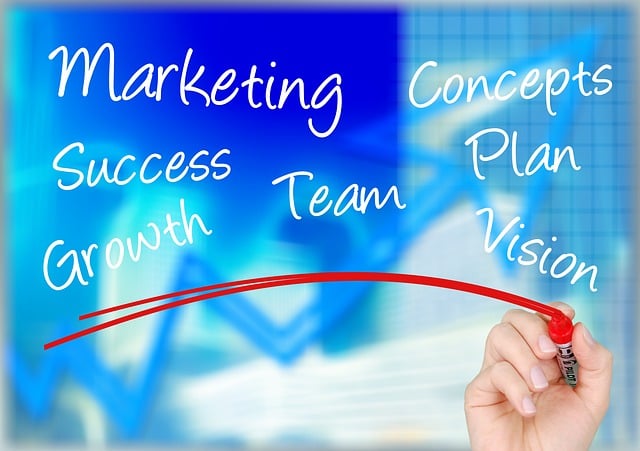AI coaching is transforming vehicle repair by leveraging artificial intelligence technologies to create personalized training programs. Through machine learning, AI coaches analyze data to identify knowledge gaps and create adaptive learning paths, ensuring mechanics receive targeted instruction on specific procedures, tools, and industry updates. This results in improved efficiency, accuracy, and productivity due to faster troubleshooting times, fostering a culture of continuous development. Implementing AI coaching involves assessing current processes, selecting tailored AI tools, launching a pilot program, conducting training, rolling out the system gradually, and providing ongoing support. The technology revolutionizes workflows by streamlining diagnostic and repair tasks, analyzing data for patterns, and providing step-by-step guidance, ultimately boosting productivity and excellence in vehicle repair services for businesses.
AI coaching is transforming vehicle repair industries, offering unprecedented efficiency gains and enhanced accuracy. This article delves into the power of AI training for repair teams, exploring its benefits and providing a practical step-by-step guide to implementation. From streamlining diagnostics to optimizing parts replacement, AI coaching empowers technicians with data-driven insights. Learn how this innovative approach can revolutionize your business, improving customer satisfaction and reducing costs in today’s competitive market.
- Understanding AI Coaching and its Benefits for Vehicle Repair Teams
- Implementing AI Training: A Step-by-Step Guide
- Enhancing Efficiency and Accuracy with AI in Vehicle Repair Processes
Understanding AI Coaching and its Benefits for Vehicle Repair Teams

AI coaching is transforming the landscape of vehicle repair, offering significant advantages to businesses and their teams. It involves leveraging artificial intelligence technologies to provide personalized training programs tailored to each mechanic’s unique learning style and needs. By employing machine learning algorithms, AI coaches can analyze vast amounts of data, identify knowledge gaps, and create adaptive learning paths. This ensures that mechanics receive targeted instruction on specific repair procedures, tools, and industry updates, enhancing their skills over time.
The benefits are manifold: improved efficiency as mechanics can focus on practical application; increased accuracy due to standardized training; and enhanced productivity through faster troubleshooting and repair times. AI coaching also facilitates continuous learning, keeping vehicle repair teams updated with the latest advancements in technology and best practices. This innovative approach not only improves business performance but also fosters a culture of ongoing development within the workforce.
Implementing AI Training: A Step-by-Step Guide

Implementing AI Coaching for Vehicle Repair Teams: A Streamlined Guide
1. Assess Current Processes: Begin by evaluating your team’s current repair practices, identifying pain points, and understanding existing workflows. This step is crucial to tailor AI integration effectively.
2. Select Suitable AI Tools: Choose AI solutions designed specifically for automotive repairs. These tools should offer features like visual inspection support, diagnostic aid, and knowledge base enhancement. Ensure they align with your team’s skill sets and are easy to adopt.
3. Pilot Program Execution: Initiate a pilot program involving a small, dedicated group of repair technicians. This allows for hands-on experience and adjustments before full-scale implementation. Encourage open feedback to refine the AI system based on real-world application insights.
4. Training and Onboarding: Conduct comprehensive training sessions covering AI tool functionality, expected outcomes, and potential challenges. Ensure every team member understands their role in leveraging AI for improved efficiency and accuracy.
5. Gradual Rollout: Once refined through pilot testing, gradually introduce the AI system to the entire repair team. This phased approach enables smooth transition, allowing technicians to adapt at their own pace while fostering a collaborative learning environment.
6. Ongoing Support and Updates: Provide regular updates, technical support, and refresher courses to keep the team up-to-date with AI advancements. Continuous improvement ensures your vehicle repair business stays ahead in adopting cutting-edge technology for optimal performance.
Enhancing Efficiency and Accuracy with AI in Vehicle Repair Processes

Incorporating AI coaching into vehicle repair processes is transforming the way teams work, enhancing both efficiency and accuracy. By leveraging machine learning algorithms, repair businesses can streamline their workflows, reducing the time typically spent on diagnostic and repair tasks. These algorithms are capable of analyzing vast datasets to identify patterns and potential issues, enabling technicians to make more informed decisions. AI tools can also provide step-by-step guidance during repairs, ensuring consistency and minimizing human error.
Furthermore, AI coaching allows for continuous learning and adaptation. It can capture and analyze real-world data from various repair scenarios, updating its knowledge base as new information becomes available. This adaptive nature ensures that the AI system remains relevant and effective even with evolving vehicle technologies and repair methodologies. As a result, AI coaching not only boosts productivity but also raises the standard of excellence in vehicle repair services.
AI coaching is transforming vehicle repair businesses by enhancing efficiency, accuracy, and overall job satisfaction. By implementing AI training, repair teams can streamline processes, reduce errors, and stay ahead in a rapidly evolving automotive industry. This step-by-step guide has outlined the benefits and practical steps to integrate AI into your workflow, ensuring your team is well-equipped to excel in modern vehicle repair practices.
